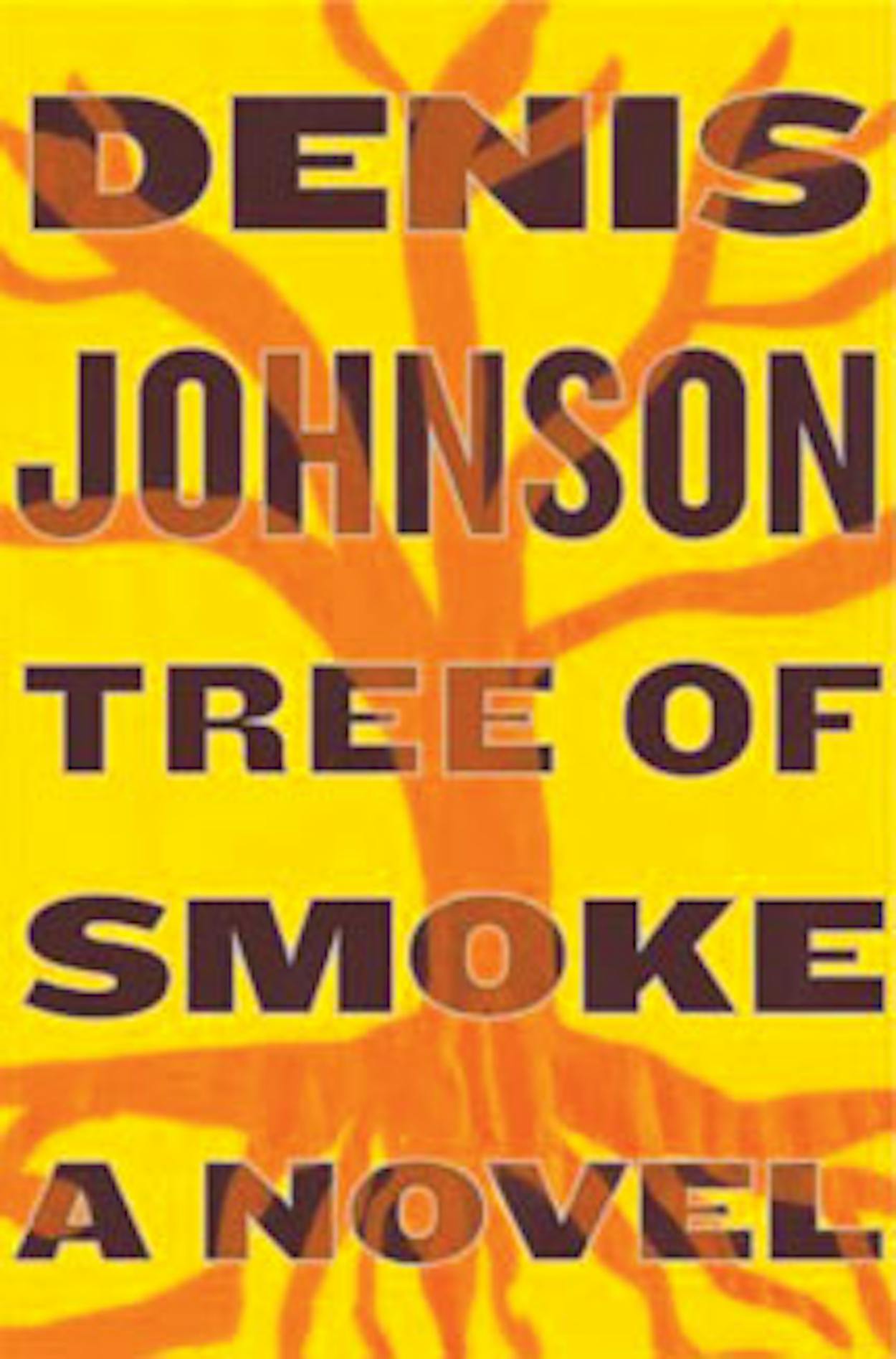Vietnam. Thirty-plus years after helicopter airlifts signaled the fall of Saigon, the name still evokes ghastly images of napalm-scorched children and ad hoc executions by handgun. Denis Johnson, author of Jesus’ Son and currently the Mitte chair of creative writing at Texas State University, summons that communal memory to cast a pall of horror over Tree of Smoke, his first full-length novel in seven years. The reader knows there’s no happy ending to this misadventure; the writer’s challenge is to sift through the conflict’s entrails and divine deeper meaning.
The narrative follows a slew of characters: There’s infantryman James Houston and his tunnel rats, rooting out guerrillas; Houston’s dysfunctional family in Phoenix; Vietcong foot soldier Trung Than, who betrays his cadre by turning double agent; and Canadian charity worker Kathy Jones, who runs a clinic for Vietnamese orphans. But Johnson’s gaze is trained most firmly on the U.S. intelligence community in the Pacific Rim, in particular on Colonel Francis Xavier Sands and his nephew, William “Skip” Sands. The Colonel, an old military hand turned spook, is part legend and part renegade, operating under questionable authority and the influence of nostalgia, paranoia, and alcohol. His life’s work is a 19,000-card index file, the so-called Tree of Smoke, that he believes will solve the riddle that is Vietnam. Skip, a CIA Psy Ops greenhorn, is consigned to the make-work task of cross-referencing his uncle’s opus and must try to make sense of the Colonel’s bewildering retinue of operatives, assassins, officers, and politicians. Meanwhile, back at the real war, grunts like Houston are stuck in the now-familiar quagmire of guerrilla warfare. Failure leads to frustration. Frustration leads to atrocities. It’s the stuff of headlines.
But for all the violence of battle, Tree of Smoke is most tragic after the guns are stilled. Houston, churned up by multiple tours of combat duty, is unwillingly discharged and spit out onto the streets of Phoenix. Time finally catches up with the Colonel, and his minions sink into the shadowy realm of smugglers and gunrunners. Soldiers, spies, and civilians are left to ambulate in a postwar fever dream, an unrelenting weariness sticking to them like hot tar.
It’s tempting to chide Johnson for turning to Vietnam—the low-hanging fruit of American metaphors—for subject matter, but this epic fiction is an essential take on the much-visited theme. The Colonel calls Vietnam “a different world under a different God.” Tree of Smoke is a scary and brilliant portrait gallery of its inhabitants. Farrar, Straus & Giroux, $27







